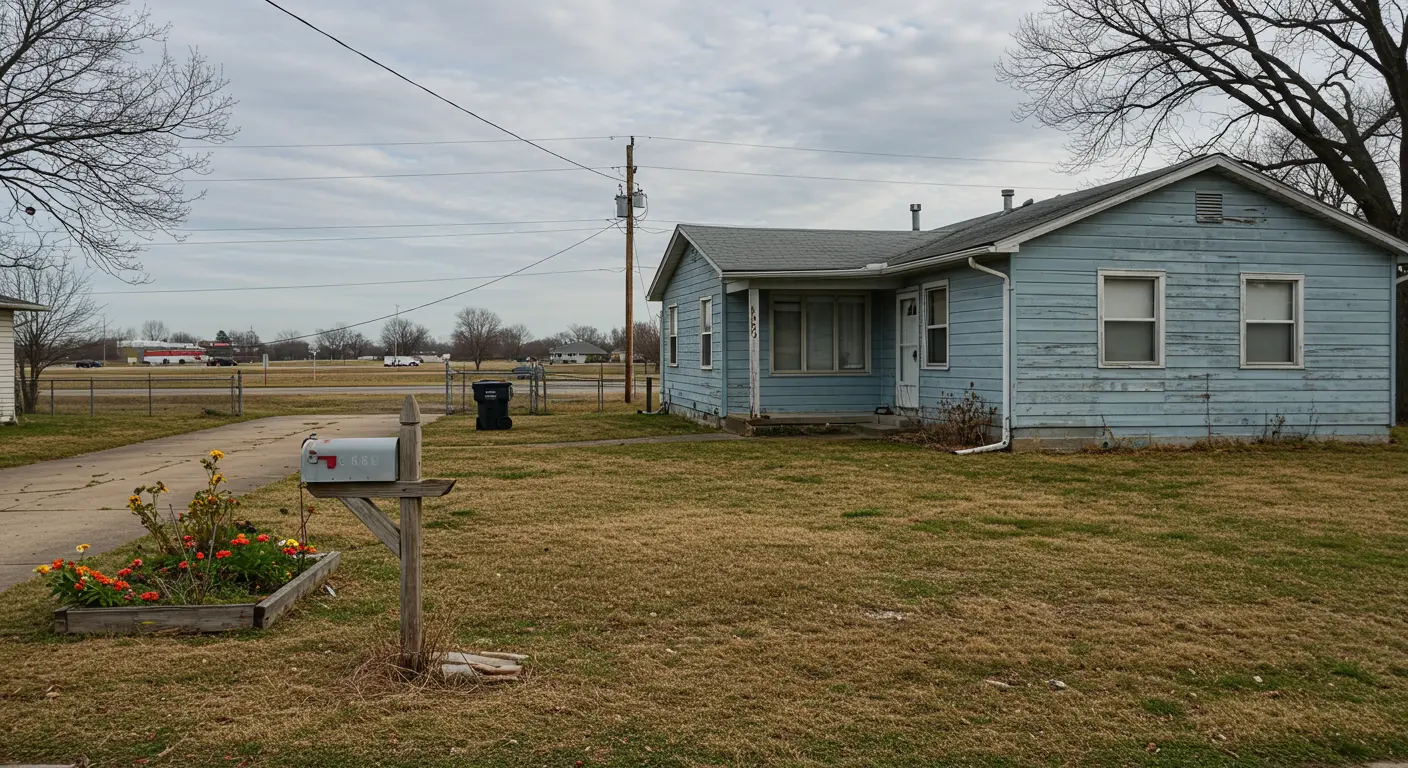Worst States to Retire In – A Comprehensive Guide
Overview of the Worst States for Retirement
Planning for retirement involves countless considerations, yet location stands as one of the most pivotal factors shaping your golden years. Understanding which states present significant challenges is equally important as identifying those perfect retirement havens.
Research consistently shows that certain states present significant challenges for retirees.
Worst States for 2024
-
Alaska
-
New York
-
Washington
-
California
-
North Dakota
-
Kansas
-
Georgia
-
Oklahoma
-
Illinois (noted as particularly problematic)
-
Maryland
-
Alabama
-
Tennessee
-
Oregon
-
Indiana
Worst States for 2025
Experts identified the following ten worst states for 2025, which typically share issues like high taxes, elevated crime, and subpar healthcare: -
Kentucky (ranked worst overall, scoring 45th in healthcare and 41st in quality of life)
-
Louisiana
-
Mississippi
-
Washington
-
New Mexico
-
New Jersey
-
Rhode Island
-
West Virginia
-
Arkansas
-
Hawaii
Understanding these rankings helps prospective retirees to make strategic decisions about their retirement destination. The key lies in carefully weighing affordability against safety, healthcare accessibility, and overall quality of life—a delicate balance that significantly impacts your retirement experience.
Top 10 Worst States to Retire In
Several states repeatedly surface on lists of problematic retirement destinations. Rankings fluctuate based on methodology, but certain troubling patterns persist across studies.
This analysis examines the ten most challenging states for retirement, examining the specific pitfalls—from crushing costs to inadequate healthcare—that transform what should be golden years into potential struggles.
#1 Kentucky – A Closer Look
Kentucky ranks as the worst retirement state due to multiple challenging factors that systematically undermine retirees’ well-being.
Healthcare is Kentucky’s biggest challenge, languishing at 45th nationally. For retirees requiring specialized care, this means: substandard treatment, long wait times, and wallet-draining expenses.
The state’s quality of life ranking (41st) tells an equally troubling story. Despite Kentucky’s undeniable natural beauty, its predominantly rural character severely limits access to cultural amenities, recreational facilities, and community engagement opportunities that make retirement fulfilling.
While Kentucky’s low cost of living may seem appealing to budget-conscious retirees, this benefit has drawbacks. Limited economic opportunities and below-average retirement benefits mean retirees may struggle financially despite lower costs.
Climate creates additional challenges. Hot summers and cold winters can exacerbate existing health conditions among seniors. Meanwhile, aging infrastructure—particularly in remote areas—makes transportation and accessing services difficult.
#2 Louisiana – Cultural Richness vs. Risks
Louisiana offers both attractions and serious drawbacks: rich culture but significant practical challenges. The state’s unique combination of heritage, world-class cuisine, and infectious music scene—epitomized by New Orleans’ legendary atmosphere—offers experiences found nowhere else on Earth.
However, these attractions are overshadowed by Louisiana’s serious risks to safety, health, and financial security. The state’s high vulnerability to hurricanes and flooding creates a perpetual threat. Power outages, devastating property damage, and forced displacement hit seniors particularly hard, often overwhelming their resources and resilience.
Crime statistics are also concerning—Louisiana consistently ranks among America’s most dangerous states. High crime rates limit retirees’ activities, restricting their mobility and social connections while reducing their quality of life.
Healthcare deficiencies worsen these problems. Louisiana’s medical system struggles with chronic underfunding and provider shortages, particularly in rural regions where specialists and advanced facilities remain scarce. For retirees facing mounting medical needs, accessing care becomes very difficult.
The financial landscape has both advantages and disadvantages. While Louisiana spares Social Security from taxation, other retirement income faces the tax collector. Add high hurricane insurance costs and disaster recovery costs, and the state’s modest living expenses become less attractive.
#3 Mississippi – Affordability vs. Safety
Mississippi presents a difficult choice: exceptional affordability shadowed by alarming quality-of-life deficits. Ranking 9th nationally for affordability, the state’s rock-bottom housing and living costs attract budget-conscious retirees, promising their dollars will stretch remarkably far.
However, this affordability comes with serious drawbacks. Mississippi’s poor ranking for quality of life, combined with its 47th-place healthcare system, shows the hidden costs. Retirees discover that accessing quality specialists and medical facilities becomes a frustrating, often impossible quest—particularly when managing chronic conditions that demand expert care.
High crime rates worsen Mississippi’s retirement challenges. Safety concerns limit seniors’ activities, limiting their activities and social engagement. While the state’s warm climate and natural beauty offer recreational possibilities, extreme summer heat poses genuine health risks for vulnerable seniors.
#4 Washington – High Costs and Natural Beauty
Washington State presents a difficult situation: breathtaking natural splendor coupled with very high living costs. Though its majestic mountains, pristine coastlines, and abundant outdoor recreation opportunities are ideal for active retirement, housing expenses are among the highest in America—even in supposedly affordable rural areas.
Healthcare costs also strain to retirement budgets. Despite Washington’s reputation for quality medical facilities—particularly in metropolitan areas—the high cost of care quickly depletes retirement savings. Seniors requiring regular medical attention find costs especially challenging.
Natural disaster risks complicate Washington retirement planning. The state’s position along the volatile Cascadia Subduction Zone poses earthquake risks that could damage communities and infrastructure.
Meanwhile, increasingly frequent wildfires cause air quality problems and evacuation risks that disproportionately impact older residents with health conditions or mobility limitations. The state’s notoriously dreary climate is another factor to consider—persistent rain and overcast skies dominate many regions for months, potentially triggering seasonal depression and severely limiting outdoor activities during winter. This is especially challenging for retirees seeking vibrant, active lifestyles.
#5 New Mexico – Warm Climate, High Crime
New Mexico attracts retirees with its sun-drenched climate, fascinating cultural tapestry, and thriving arts community. These genuine attractions seem appealing until practical concerns arise.
Crime is New Mexico’s biggest problem—the state consistently claims the nation’s highest crime rates. High crime affects how retirees live, forcing constant vigilance and severely restricting their daily activities and life choices.
Healthcare access is also challenging. Chronic provider shortages plague the state, particularly in rural communities where medical resources remain desperately scarce. For seniors managing complex health conditions, poor access to care can be dangerous.
While New Mexico’s cost of living undercuts neighboring states, this modest financial advantage doesn’t make up for the severe safety and healthcare deficiencies. The state’s dismal quality-of-life rankings reflect these serious problems.
#6 New Jersey – High Costs and Taxes
New Jersey has very high living costs, boasting living costs that soar 19.8% above national averages. High costs affect nearly every part of Garden State retirement, creating sustained financial stress for seniors dependent on fixed incomes.
Housing costs cause most of these high costs. Home prices and property taxes both are among the highest in America, putting significant pressure on homeowners’ finances. Property tax rates alone create ongoing financial stress.
Healthcare expenses add to the high costs, with premiums, prescriptions, and medical services all exceeding national benchmarks. Retirees see these high costs consume more of their carefully planned budgets.
The state’s tax structure creates more financial burden. While Social Security escapes taxation, virtually all other retirement income—including pensions and 401(k) withdrawals—is taxed, reducing retirees’ net income and purchasing power.
Climate challenges aren’t limited to costs. High summer heat and humidity can be harmful for seniors with underlying health conditions. Winter brings its own hazards: snow and ice create treacherous conditions that threaten mobility and safety for older residents.
Heavy traffic and crowding make daily activities stressful. For retirees dreaming of peaceful, leisurely golden years, these urban pressures can reduce retirement satisfaction and mental well-being.
#7 Rhode Island – Scenic but Expensive
Rhode Island combines classic New England charm and stunning coastal beauty into America’s smallest state—just 1,214 square miles. This compact geography creates unique advantages: beaches, cultural attractions, and historic sites remain easily accessible, creating a beautiful retirement setting.
This beauty comes at a high cost. Living costs hover 13% above national averages, creating sustained pressure on fixed retirement incomes. Housing costs are especially high, with average home prices approaching $493,000—a figure that quickly depletes retirement savings.
Rhode Island’s tax landscape has mixed tax implications for retirees. Sales taxes remain relatively modest, offering some daily relief at checkout counters. However, property taxes can strain homeowners’ finances, while income taxes target multiple forms of retirement income, gradually reducing seniors’ financial security.
Healthcare quality is a positive aspect—Rhode Island maintains excellent medical standards that are very beneficial for aging seniors. Yet the state’s limited hospital capacity per capita can create access bottlenecks, particularly during health emergencies when immediate care becomes critical.
Traffic congestion becomes very heavy during peak tourist season, making routine tasks take much longer. Medical appointments and routine activities become logistical challenges that can frustrate and exhaust older residents.
The four-season climate offers variety, with coastal areas enjoying oceanic moderation. However, winter’s snow and ice create significant mobility hazards and safety concerns for seniors, potentially limiting their independence during harsh weather months.
#8 West Virginia – Affordability vs. Healthcare
West Virginia attracts retirees with an appealing combination: exceptional affordability and stunning mountain scenery perfect for outdoor enthusiasts. These genuine advantages, however, are overshadowed by the state’s serious healthcare problems.
The healthcare crisis is severe—West Virginia ranks a dismal 46th nationally in elderly care. This means limited medical resources: scarce specialists, inadequate rural facilities, and consistently poor health outcomes. Seniors with chronic conditions have especially limited options.
Geography compounds these healthcare challenges dramatically. Mountainous terrain makes travel difficult, with winding roads and vast distances separating communities from medical centers. Winter weather transforms routine medical appointments into potentially dangerous journeys, especially for seniors with mobility limitations.
Tax policies have both benefits and drawbacks. While Social Security remains untaxed, 401(k) and IRA withdrawals face taxation, reducing retirees’ net income compared to more tax-friendly alternatives.
Economic challenges mean fewer resources throughout the state. Many communities lack essential amenities, cultural opportunities, and senior support services, creating isolation that significantly impact quality of life and social connections for older residents.
#9 Arkansas – Low Cost, High Crime
Arkansas attracts retirees with very low living costs and genuine natural beauty—rolling mountains and mild climate seem perfect for outdoor recreation. These surface attractions, however, hide significant issues: rampant crime and substandard healthcare.
Crime statistics are concerning. Arkansas consistently ranks among America’s most dangerous states, affecting how retirees live. Daily activities become calculated risks, while peace of mind becomes an increasingly rare commodity.
Healthcare quality is also problematic. Provider shortages plague the state, particularly in rural areas where medical resources remain desperately limited. Poor healthcare access can be dangerous for seniors requiring specialized care or managing complex health conditions.
These problems together create: while Arkansas offers financial affordability, fundamental concerns about personal safety and healthcare access create a retirement environment fraught with anxiety and risk.
#10 Hawaii – Paradise with a Price
Hawaii presents a difficult choice—a tropical paradise with very high costs. The state’s year-round warmth, breathtaking landscapes, and unique cultural heritage seem very appealing. However, the high costs can be overwhelming.
The islands’ genuine advantages are real. Consistent temperatures between 70-85°F create ideal conditions for active outdoor living, while Hawaii’s excellent healthcare system provides quality medical care. These factors can significantly enhance seniors’ health and overall well-being.
However, living in Hawaii is very expensive. Living costs soar roughly 70% above national averages, creating financial pressure that often strain retirement budgets. Housing costs are especially high—even modest homes command premium prices that quickly depletes lifetime savings.
High costs aren’t limited to housing. Groceries, utilities, healthcare, transportation—virtually every expense category costs substantially more than mainland alternatives. These consistently high costs put ongoing financial pressure on retirees that many retirees find ultimately unsustainable.
Taxation makes costs even higher. While Social Security enjoys some preferential treatment, most other retirement income is taxed, reducing seniors’ already-strained purchasing power.
Geographic isolation has drawbacks. The romantic notion of island living can become problematic during family emergencies or when accessing specialized medical care unavailable locally. Mainland travel is very costly and time-consuming, effectively limiting family connections and support networks.
Factors Influencing Retirement Decisions
Conclusion – Making Informed Retirement Choices
Selecting your retirement destination is one of life’s most important decisions. This analysis shows that: numerous states consistently fail retirees across critical metrics including quality of life, financial stability, and personal safety.
Kentucky, Louisiana, and New Mexico show how, demonstrating how inadequate healthcare, rampant crime, and high costs can transform golden years into daily struggles for survival and dignity.
Good retirement planning requires thorough research that examines multiple interconnected factors instead of focusing only on single benefits. Consider this: a state boasting low taxes but offering abysmal healthcare access could end up costing more when medical travel costs and inadequate treatment outcomes enter the equation. Similarly, affordable housing in crime-ridden areas often carries hidden quality-of-life costs that completely negate any financial benefits.
Your personal circumstances should guide your decision. Chronic health conditions? Healthcare quality and accessibility should be your top priority. Retiring on a shoestring budget? Affordability and taxation might be more important, despite significant drawbacks in other areas.
Remember that conditions vary significantly within individual states. Even poorly-ranked states might have excellent areas that offer superior conditions for retirees. Conducting research at both state and local levels may uncover good options within otherwise challenging environments.
Success requires thorough research, clear priorities, and realistic expectations. With this approach, you can avoid the problems in these challenging states and discover a retirement destination that truly supports your financial security, health, and happiness.







